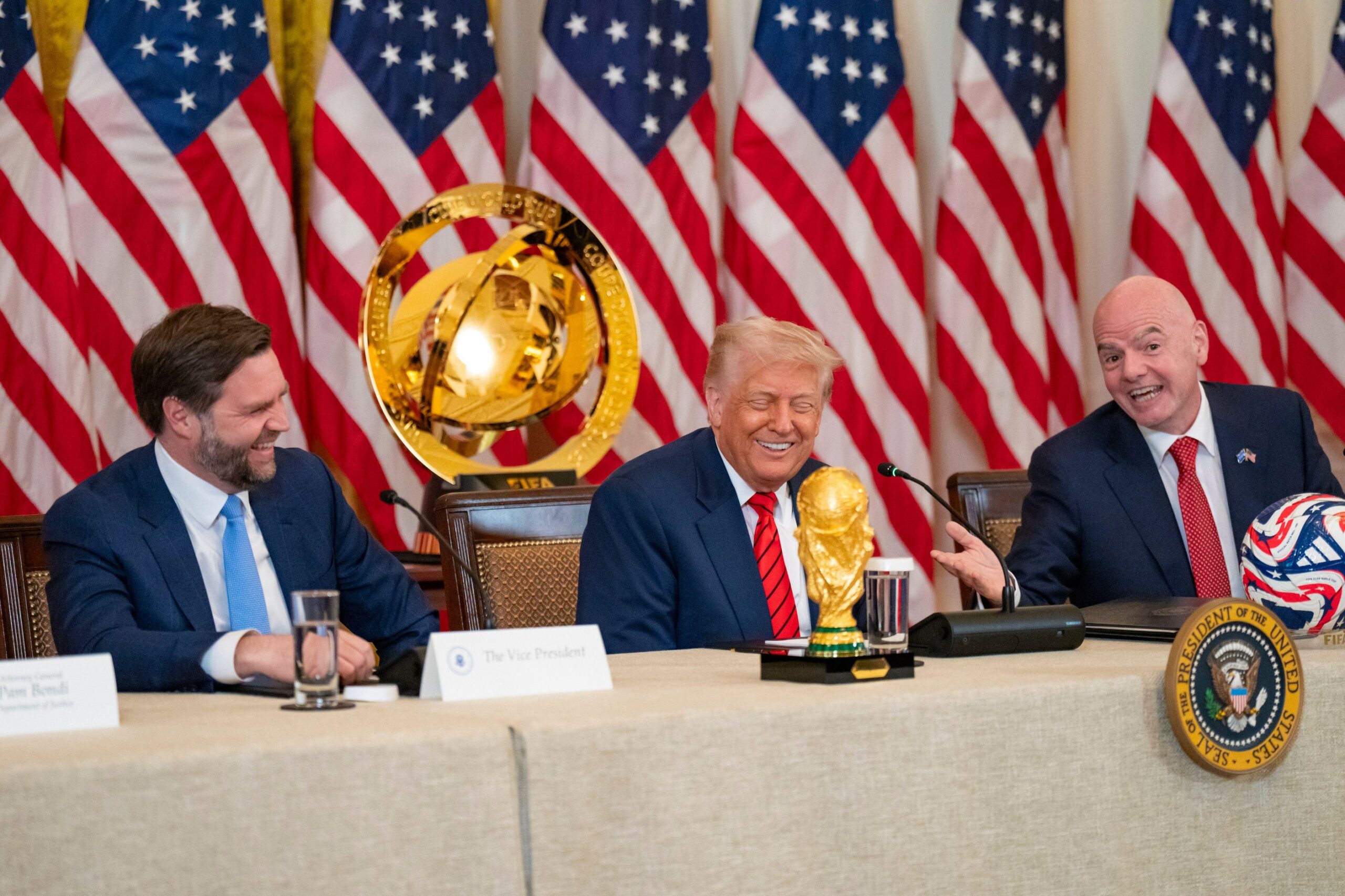
FairSquare is offering its full support to a proposal, made this week by eminent legal scholars, for the European Union to regulate sport, which outlines the possible text of a European Sports Act.
The European Sports Act: A Proposal to Improve Sports Governance through EU Legislation, a London School of Economics Working Paper co-authored by Dr Jan Exner of the University of Prague, Professor Stephen Weatherill of Oxford University, and Dr Jan Zglinski of LSE, was published yesterday.
The paper describes how a long list of governance failures are affecting a wide range of sports, with football’s ruling bodies providing “the clearest example of governance dysfunction”. FairSquare’s October 2024 report, Substitute, came to similar conclusions on the operations of FIFA, which it found had been linked to abuses including mass evictions, the destruction of livelihoods, police abuse, extrajudicial killings and other violations of the right to life, forced labour, and physical, sexual and psychological abuse.
The expert paper argues that the EU is the best available actor to regulate the sector, as self-regulation has been repeatedly shown to be wholly ineffective. It describes the EU’s constitutional authority to legislate on sports governance, and proposes a draft text for a European Sports Act, drawing on the case law of the European Court of Justice, EU sports policies and Member States’ sports legislation.
“The evidence in favour of imposing regulation on dysfunctional sport bodies like FIFA is now overwhelming and with this clear-sighted and visionary paper we get to see for the first time what that could look like in practice. When scholars of this calibre propose measures of this nature, policymakers in Brussels should pay attention.” Nicholas McGeehan, co-director FairSquare.
The paper advocates for what its authors describe as a “middle ground” regulatory approach whereby the EU would set out rules on good governance and a few adjacent areas, such as social responsibility, including human rights, sporting competitions, and athlete rights, while leaving other domains under the control of EU member states. As noted in the paper, EU action would have the potential to reshape sports governance globally, since organisations that are based outside the EU but economically active within it – UEFA and FIFA, for example – would have to comply with the EU rules if they want to access the internal market. The paper adds to the growing momentum for enhanced accountability for and oversight of sports governing bodies. In March 2025, Play The Game published its proposals for an independent, overarching entity dedicated to combating crime, corruption, and other integrity breaches in sport.
“Sport needs governing bodies – without them, who will set the rules of the global game, who will champion the virtues of sport? But governing bodies need to improve the way they operate, and to that end this is a proposal for mandatory standards of good governance to be set by the EU. Let’s make sport better!” Stephen Weatherill, University of Oxford
“Sport is too important to be poorly governed. Our proposal for a European Sports Act seeks to achieve much-needed change by putting good governance, social responsibility, human rights, and athlete welfare front and centre. For the good of the games.” Dr Jan Zglinski, London School of Economics
FairSquare work on football governance
FairSquare has been advocating for the external reform of FIFA on the basis of its organisational dysfunction, and the organisation’s contribution to a wide range of social harms, not least very serious and systematic human rights abuses. In October 2024, FairSquare published a policy brief, co-authored with Dr Zglinski, outlining the case for the EU regulation of sport.
Exner, Weatherill and Zglinski’s proposed law would go a long way to addressing human rights abuses linked to the operations of sporting governing bodies like FIFA. A provision in the proposal on “human rights and environmental due diligence” states that “Sports governing bodies and competition organisers shall include human rights within their criteria for evaluating bids to host sporting competitions and make them a substantive factor in host selection.” Despite FIFA’s institution of a human rights policy and its requirement that prospective hosts of World Cups include a section on how they intend to address human rights risks, FIFA’s commitment to human rights remains largely rhetorical in view of the fact that they do not factor into the scoring system through which FIFA formally assesses bids.


